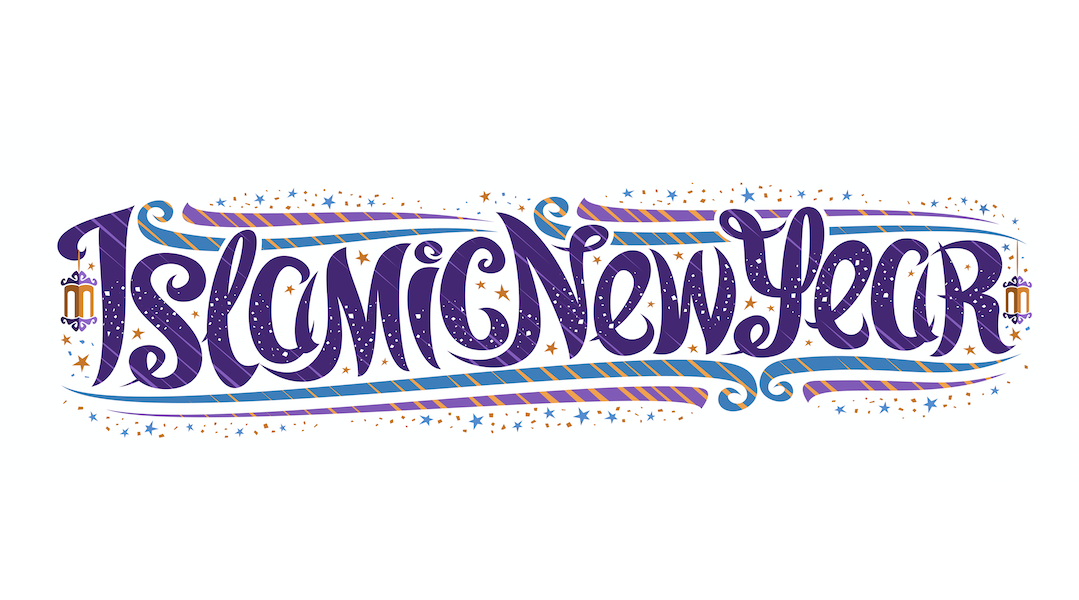A New Year in the Islamic Calendar
Today is August 20th, meaning we are deep into the year 2020, but for Muslims around the world, today marks the beginning of a new year. It’s the first day of the month of Muharram, the first of twelve months in the 354-day Islamic calendar, also known as the Hijri. This calendar follows the cycles of the moon—unlike the Gregorian calendar, which lasts 365 days and follows Earth’s revolutions around the sun. This year, the Muslim world enters the year 1442.
Here is a video that explains a bit more about the history of the Hijri calendar:
So what are the twelve months of the Islamic calendar? They are:
- Muharram
- Safar
- Rabi' al-awwal
- Rabi' al-thani
- Jumada al-awwal
- Jumada al-thani
- Rajab
- Sha'ban
- Ramadan
- Shawwal
- Dhu al-Qi'dah
- Dhu al-Hijjah
The calendar year begins with the month of Muharram, marking the migration of the Prophet Muhammad and his followers from Mecca to Medina. Muharram means “forbidden,” and acts of warfare or fighting have historically been forbidden during this month. One day of note during this month is the Day of Ashura on the tenth day, which is recognized differently (and for different reasons) by Sunni and Shia sects.
You might already be familiar with some other aspects of the Islamic calendar. The ninth month of Ramadan is perhaps the most well-known outside of the Muslim world, and is the month in which Muslims fast from dawn to dusk. This act of fasting represents one of the Five Pillars of Islam. Here on CultureReady, we have explored Ramadan before, from a blog post on athletes observing Ramadan during the World Cup to videos on Ramadan in Sudan, Algeria, Morocco, and the Arabian Peninsula.
The twelfth month of the Hijra is the Dhu al-Hijjah, the month in which the pilgrimage to Hajj takes place—yet another of the Five Pillars. It is also significant for the Eid al-Adha, the Festival of Sacrifice, which starts on the tenth day of the month.
In the future, if you are traveling to a predominantly Muslim country, be sure to familiarize yourself with the Islamic calendar. Before you schedule meetings or travel to certain areas, check to make sure it’s not falling during a particular event that could lead to businesses being closed or people taking the day off of work. Just as you would expect visitors to your country and hometown to respect the holidays in your community, you should also respect the religious observances and holidays in any country that you visit.
Learn more:
- The Islamic Calendar
- Al Hijri 2020 date: Know when Muharram and Islamic New Year will be observed this year
- Overview of the Islamic Calendar (Hijrah)
